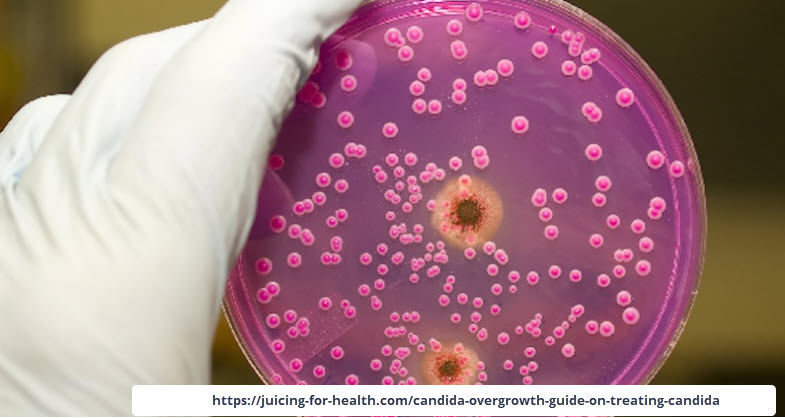Candida Information
Candida albicans is a normal bacteria inside all of our bodies in balance with many other microorganisms. When this natural bacteria grows in outstanding numbers it overtakes all other healthy microorganisms. It lives off your food making you crave more sweets and starches and releases toxins that poison your body’s tissues. Candida can be considered one of the prominent factors for chronic illnesses today.
Candida confuses most doctors as well as patients because it can cause a wide spectrum of symptoms, seemingly unrelated to each other. Some doctors, mostly main stream doctors, don’t know about its impact on our health and other doctors do not believe that a candida disorder even exists. Most candida sufferers often go from one doctor to the next and are often accused of being a hypochondriac or having a psychiatric problem.
Antibiotic drugs are taken to kill bacteria but they also kill the good bacteria along with the bad. Killing off good bacteria affects our bacterial balance and opens a door for candida to begin proliferating. Candida feeds on antibiotics and the bacteria killed by antibiotics which stimulates its growth and satisfies its appetite.
Common Candida Symptoms:
| Gas | Diarrhea | Forgetfulness | Headaches/Migraines |
| Itching | Coughing | Constipation | Reduced Sex Drive |
| Fatigue | Earaches | Hyperactivity | Athletes Foot |
| Acne | Anxiety | Weaker Muscles | Sinus Inflammation |
| Thrush | Eczema | Irritability | Cognitive Problems |
| Dizziness | Depression | Vaginitis | Fibromyalgia |
| Irritable Bowel Syndrome | Multiple Chemical Sensitivities | Investigative factor for alcoholism | Some become allergic to yeast itself |

Do you have an overgrowth of candida? Here’s a simple test to find out:
After waking up, before eating or brushing, spit into a cup of water (a clear glass will be easier to detect candida). Observe the water periodically within 60 minutes (15 minute intervals). Look for three things: Are there cloudy specks suspended in the water? Or does cloudy saliva sink to the bottom? Or do you see leg-like strings extending down from the surface of the water? If you answered yes to any of these then you most likely have a candida overgrowth. However, if your saliva is still floating with ‘no strings attached’ after 60 minutes then your candida is more or less balanced.
Concerning Your Colon
When candida overgrowth invades your intestines, your immune responses start to ignore it. With too much candida albicans in your colon you begin to develop an infection called candidiasis, also known as a yeast infection.
Treatment for candida is actually very simple. Since your colon is your “sewage system” and most fungal overgrowth happens there, a series of Colon Hydrotherapy sessions may help to rinse away much of the overgrowth. Along with colonics you should take a probiotic specially designed to control candida. Reducing your intake of sweets and starches is also very helpful when battling this bacteria. Replacing carbohydrates with high fiber foods will also help your body keep candida balanced. Avoiding dairy products except live cultured yogurt will help fight against an overgrowth of candida.
Introducing Bacillus Coagulans!
Also known as Lactobacillus sporogenes, has been proven to be the first step in the fight to control candida. L. sporogenes is a beneficial bacteria, plant derived, and is spore based offering natural protection from harmful elements that adversely affect other bacteria supplements.
Five functions a Probiotic needs in the fight to control Candida:
- Viability (Are the bacteria alive when consumed?) – Sporogenes is in the Bacillus family of bacteria so it has it’s own defense mechanism, a shell which naturally protects it from O2, light, and heat. Those factors kill other Lactobacillus bacteria like acidophilus. Sporogenes stays safe in it’s protective shell until you need it and does not need to be refrigerated
- Survivability – Extremely important, can the bacteria survive the hydrochloric stomach acid that is designed to digest and kill live bacteria made of protein? Sporogenes are a plant based bacterium unlike the animal based Lactobacillus bacteria. Their protective shell is plant based, protecting sporogenes from stomach acids naturally not artificially as in other types of enteric coatings.
- Growth – (Can the bacteria (probiotic) grow in the small intestines when candida overgrowth has taken control?)- Sporogenes can grow in a pH range from 4.4 – 10.6; with maximum growth between 6-7 pH, in the high 7’s and above. Advantage sporogenes.
- Production of lactic acid (Can the bacteria produce L+ lactic acid in sufficient numbers that the enzyme lactase can utilize and fully metabolize? )-Sporogenes is one of three bacteria used in probiotics that produces L+ lactic acid in greater quantity. Advantage sporogenes.
- Colonization(Can the bacteria re-establish as permanent residents? ) – Sporogenes is a transient bacterium that is cultured from Malt sprouts. It is found in plants where it has a short life expectancy when it comes out of its shell.
Lactobacillus sporogenes comes closer to performing the 5 probiotic functions than any of Lactobacillus bacteria.
Web Source: Nursing Times
Candida and Candida Auris info:
National Institutes of Health (NIH): Inflammation and gastrointestinal Candida colonization

